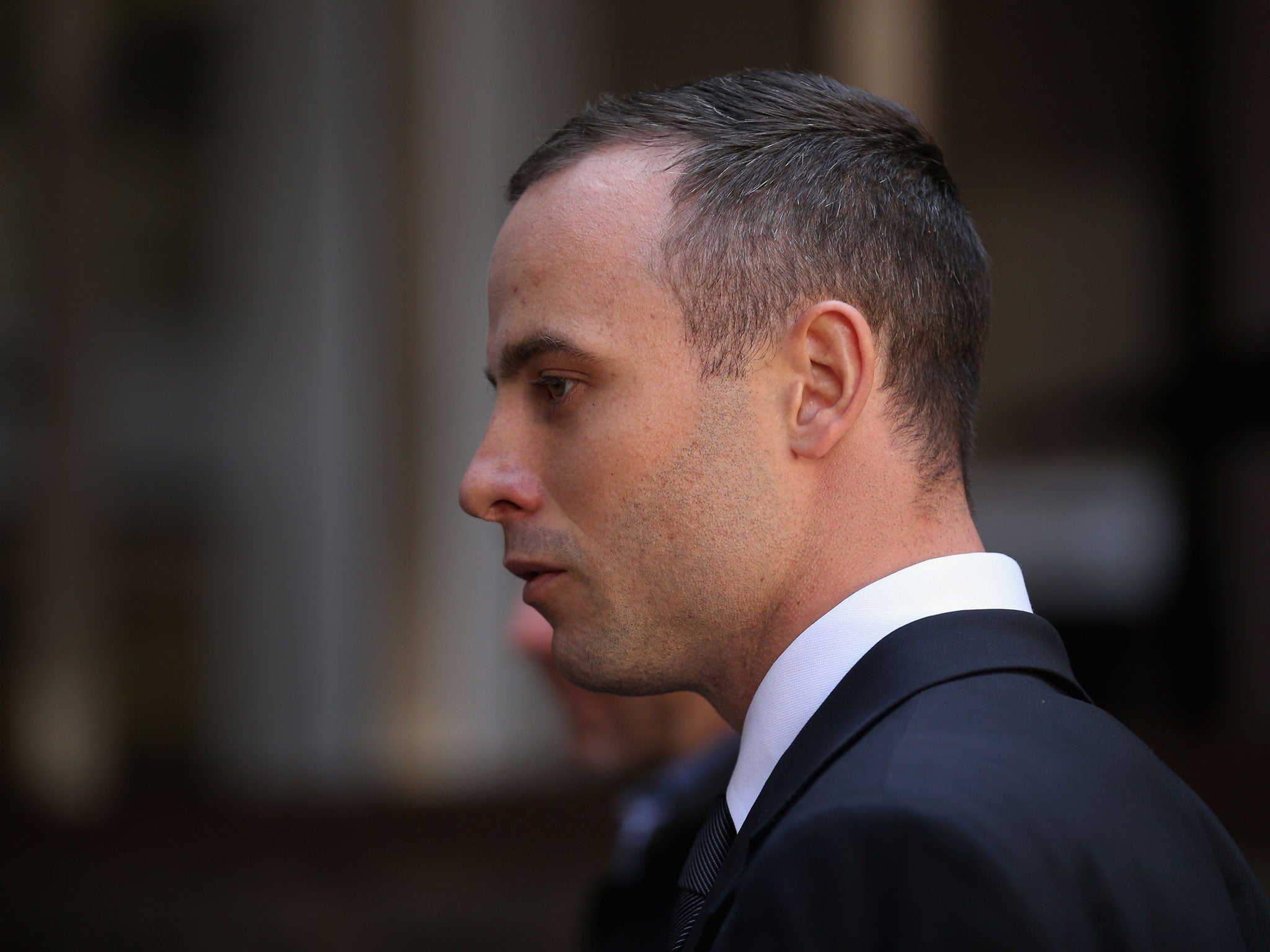Oscar Pistorius trial: Athlete to be evaluated as outpatient at South Africa's Weskoppies psychiatric hospital
The athlete is expected to attend Weskoppies psychiatric hospital for 30 days

Your support helps us to tell the story
From reproductive rights to climate change to Big Tech, The Independent is on the ground when the story is developing. Whether it's investigating the financials of Elon Musk's pro-Trump PAC or producing our latest documentary, 'The A Word', which shines a light on the American women fighting for reproductive rights, we know how important it is to parse out the facts from the messaging.
At such a critical moment in US history, we need reporters on the ground. Your donation allows us to keep sending journalists to speak to both sides of the story.
The Independent is trusted by Americans across the entire political spectrum. And unlike many other quality news outlets, we choose not to lock Americans out of our reporting and analysis with paywalls. We believe quality journalism should be available to everyone, paid for by those who can afford it.
Your support makes all the difference.Oscar Pistorius will be evaluated as an outpatient at a psychiatric hospital to determine whether his state of mind played a part in the shooting of girlfriend Reeva Steenkamp.
The athlete is expected to attend Pretoria's Weskoppies psychiatric hospital for 30 days, beginning 26 May, from 9am until 4 pm, or until he is excused by medical staff.
Pistorius will be examined by a panel of doctors, including Dr Leon Fine, Dr Herman Pretorius and Dr Jonathan Scholtz, who will determine whether he was able to appreciate the "wrongfulness" of his actions the night he shot and killed his girlfriend through a locked toilet door on 14 February, 2013.
Last week, judge Masipa granted the state's application for Pistorius to be referred to a psychiatric hospital, citing the testimony of Dr Merryl Vorster, a psychiatrist and expert witness for the defence, who argued the athlete suffers from a generalised anxiety disorder. Her testimony raised the possibility that Pistorius' criminal responsibility could be reduced as a result of his disorder.
"Even if the independent assessment confirms her diagnosis, the court will have to decide how and to what extent it affects the verdict," said Johannesburg-based lawyer David Dadic.
In her testimony, Dr Vorster told the court Pistorius understands the difference between wrong and right, but his "reaction to situations would be different" to those of an able-bodied person without an anxiety disorder, which made him "hyper vigilant" and fearful for his own safety, and his actions should be seen in that context.
Chief prosecutor, Gerrie Nel, accused the athlete of changing his defence- from self-defence, to automatism and now mental illness- and questioned the timing of Dr Vorster's testimony, who assessed him only after he gave evidence.
Mr Nel also suggested the athlete's defence introduced a mental health disorder to the case as a "fall-back" because Pistorius was an "unimpressive" witness. Barry Roux, the athlete's defence counsel, vigorously denied this. But Mr Nel insisted that, facing "at least three defences" and a potential appeal on the basis of mental illness, the court needed an independent assessment.
The court will resume on 30 June to hear the results of the evaluation.